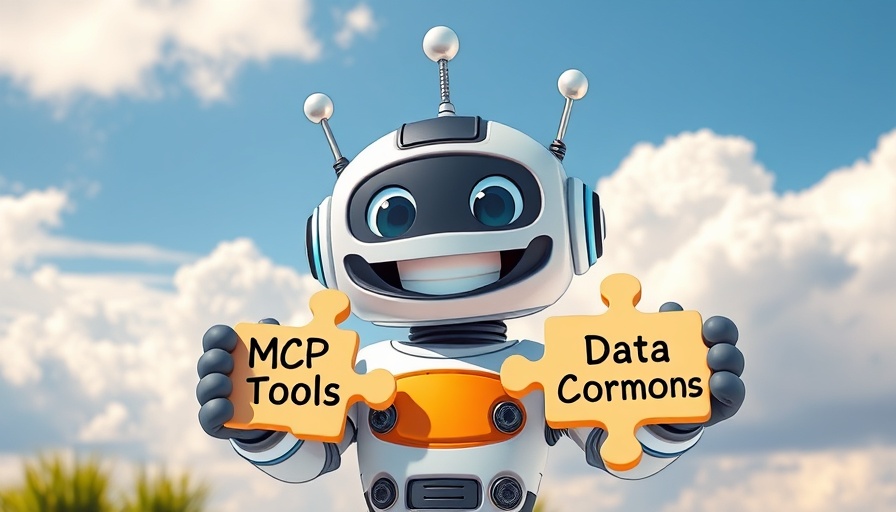
Exploring Google's Groundbreaking Data Commons MCP Server for AI
Google has officially introduced its Data Commons Model Context Protocol (MCP) Server, a pivotal resource designed to empower AI agents with direct access to a wealth of trusted data. This new server marks a significant step in enhancing the reliability of AI outputs by grounding them in verified statistical datasets, effectively mitigating the risks of model hallucination, a common issue where AI generates inaccurate information.
Originally launched in 2018, Google’s Data Commons consolidates various public datasets across numerous domains—including economics, health, and demographics—into a unified, easily navigable platform. The MCP server serves as a standardized interface, allowing developers to integrate this wealth of information into their AI applications without needing to navigate complex API structures. It opens a broad horizon for creating “data-rich” agentic applications, streamlining the process for both enterprises and independent developers to harness accurate data.
Empowering Innovation with Natural Language Queries
The real breakthrough of the MCP server lies in its ability to let AI agents respond to natural language queries. For instance, the ONE Data Agent, developed in collaboration with the ONE Campaign, exemplifies this potential by enabling users to query global health financing data effortlessly. Users can simply ask about countries facing health budget vulnerabilities or generate comparative statistics, all through intuitive, conversational interactions. Such functionalities illustrate the shift towards accessible data-driven advocacy.
According to Google software engineer Keyur Shah, “To compile a reliable report from traditional databases, users would need to work across datasets and manually pull data. Agents, however, understand complex queries and are able to fetch and compile the needed data quickly.” This efficiency highlights how AI can transform research and policymaking, cutting down the time and complexity involved in data analysis.
The Broader Implications of Reliable Data Access
The implications of the Data Commons MCP server reach beyond just healthcare. By providing reliable access to datasets, it can significantly impact fields like climate change, economic planning, and public health. Each of these areas requires constant and accurate data to drive effective decision-making. For example, climate scientists could utilize the server to pull real-time environmental data, which could be instrumental during critical events like natural disasters.
This shift towards integrating AI with trusted data might help address some skepticism around AI outputs. In an environment where transparency is becoming increasingly important, ensuring that AI models are grounded in factual information is vital for gaining user trust and expanding the reach of these technologies.
Challenges and Future Projections for AI and Data
Despite its promising features, Google’s MCP Server faces challenges. The effectiveness of this approach hinges on the accuracy, coverage, and explainability of datasets. Existing issues in global statistical systems can impact the freshness of data, complicating AI outputs. As we look ahead, the need for robust, reliable data sources will only grow, emphasizing the importance of initiatives like Google’s Data Commons.
Looking towards the future, the integration of agentic AI with trusted data repositories like the MCP server could shape new horizons for technology. This could foster innovation in various sectors, enabling AI to evolve from mere tools into contextual, reasoning entities capable of making informed suggestions and predictions based on reliable datasets. Experts predict that as AI systems become increasingly sophisticated, their role in business and daily decision-making will become indispensable.
Conclusion: A New Era of Data-Rich AI
The launch of Google’s Data Commons MCP Server is a substantial stride towards reducing the gaps between AI reasoning and the real-world data that our decisions rely on. The accessibility and efficiency it promises could not only change how AI applications are developed but also how we, as a society, interact with data. Engaging with these advancements can empower tech enthusiasts to be at the forefront of revolutionizing our interactions with AI and its applications in everyday life.
 Add Row
Add Row  Add
Add 




Write A Comment